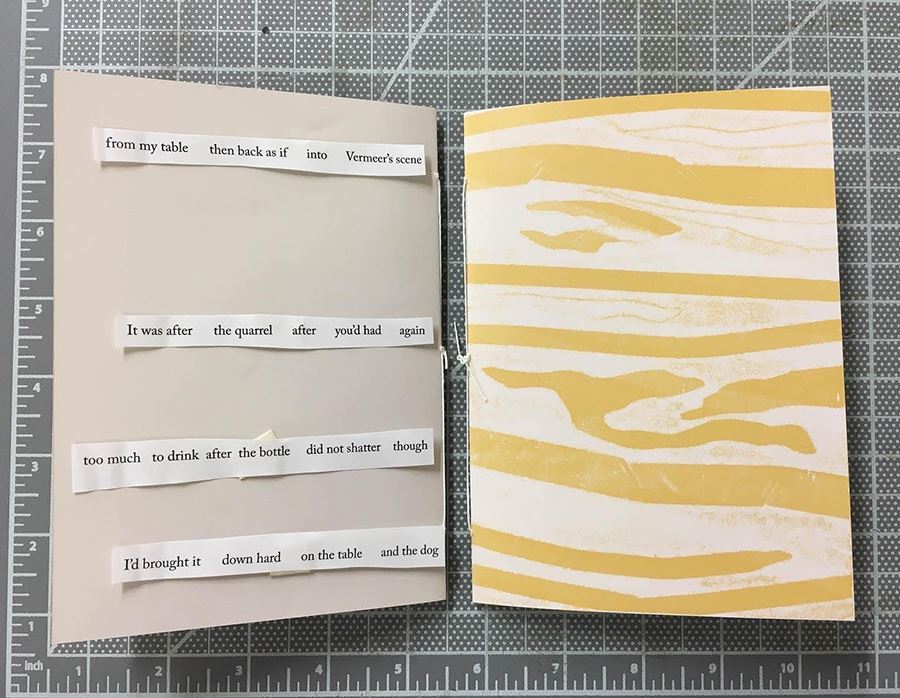
When I was in undergrad (Memphis College of Art, R.I.P.) we had a fantastic foundations class called Idea, Process, and Criticism (IPC). I hated every minute of it because it felt like the goal of the class was to show us just how depthless, expected, and trite all of our ideas were. So many of us were trying to make projects about giant topics like climate change and body image and our own voices were hardly in the work. That class, along with the rest of my education at MCA, was an important catalyst for changing my approach to idea generation and helped me become more confident in my decisions as an artist. But even with the boom of accessible online learning spurred by the pandemic, I still find myself wishing that the equivalent experience existed in the non-art-school environment.
There are plenty of assumptions about what being an artist means or what it looks like and most of those assumptions are manifestations of the (ridiculous) idea that “creativity can’t be taught.” In this brief article, I want to go back to the beginning of the art making process: the ideas; and I want to start a conversation about methods, tools, and teachings for idea generation that lead to deeper and more nuanced artworks.

When you are first starting anything, it can feel like you are floundering - never quite sure if you’re going about things in the best way and not sure if you know all the “rules.” This can be especially true with more abstract processes like idea generation. In that first semester of undergrad, I knew (in theory) that art could be about anything but through the assignments and discussions in IPC, I had to confront my preconceived notions regarding what I unconsciously thought art should look like, what it should be about, and what my role was as an artist - all of which were caricatures of the truth.

When you finally believe that your work can be about anything, where do you start? How do you continue thinking about ideas and at what point do you start making? There are so many things to consider:
- What topics are you interested in?
- What is the goal of your work?
- Why does this work have to be an art piece?
- Who is your audience?
- What do you have to say that differs from what others have said?
- How does your work fit into a larger context?
- How can aesthetics/processes/materials aid your ideas?
- How do you want your work to be experienced?
- What do you want audiences to take away from your work?
And so much more. It’s a lot. But you have to eat an elephant one bite at a time.

I start by asking myself what I’m interested in. You’ll notice I did not say “what do I want to make work about” because that is already jumping too far ahead. What topics do you actively seek out more information about; if you had to talk about a topic for hours, what would that topic be; is there a topic you find yourself perking up for if you overhear others discussing it? My answer to various forms of that questionwould probably be: memory, the function of time, sci-fi and speculative fiction, perception and reality, LGBTQIA+ stories, multiple universe theories and quantum physics, relative truths, dinosaurs, how memories inform our identities, and cryptids. (Honestly, sometimes it’s also helpful to make a list of things you are not interested in.) All of those topics are still huge though, so let’s narrow the focus.
What’s the goal of your work? I think a lot of artists think their work has to do something big and important which is why many of us in IPC immediately tried to make work that confronted huge issues. But one artwork can’t possibly solve such large problems and expecting your work to do so isn’t fair to the work, nor is it fair to the topic. So what is your goal for this one artwork? Why do you want to make this piece? Along those lines, beginning to answer that question can also help you start to think through how the work will manifest. It’s a slow process to work your way through continuously asking questions about your artwork before you begin creating, but I feel like the quality and effectiveness of artwork raises with each additional consideration.
Note: All images are of my studio.
Beth Sheehan is an artist currently living in Tuscaloosa, AL. She teaches paper, print, and book workshops around the US and virtually. She co-authored the book Bookforms. Sheehan has also worked as a professional printer at Durham Press and Harlan and Weaver and was the Bindery Manager at Small Editions.

